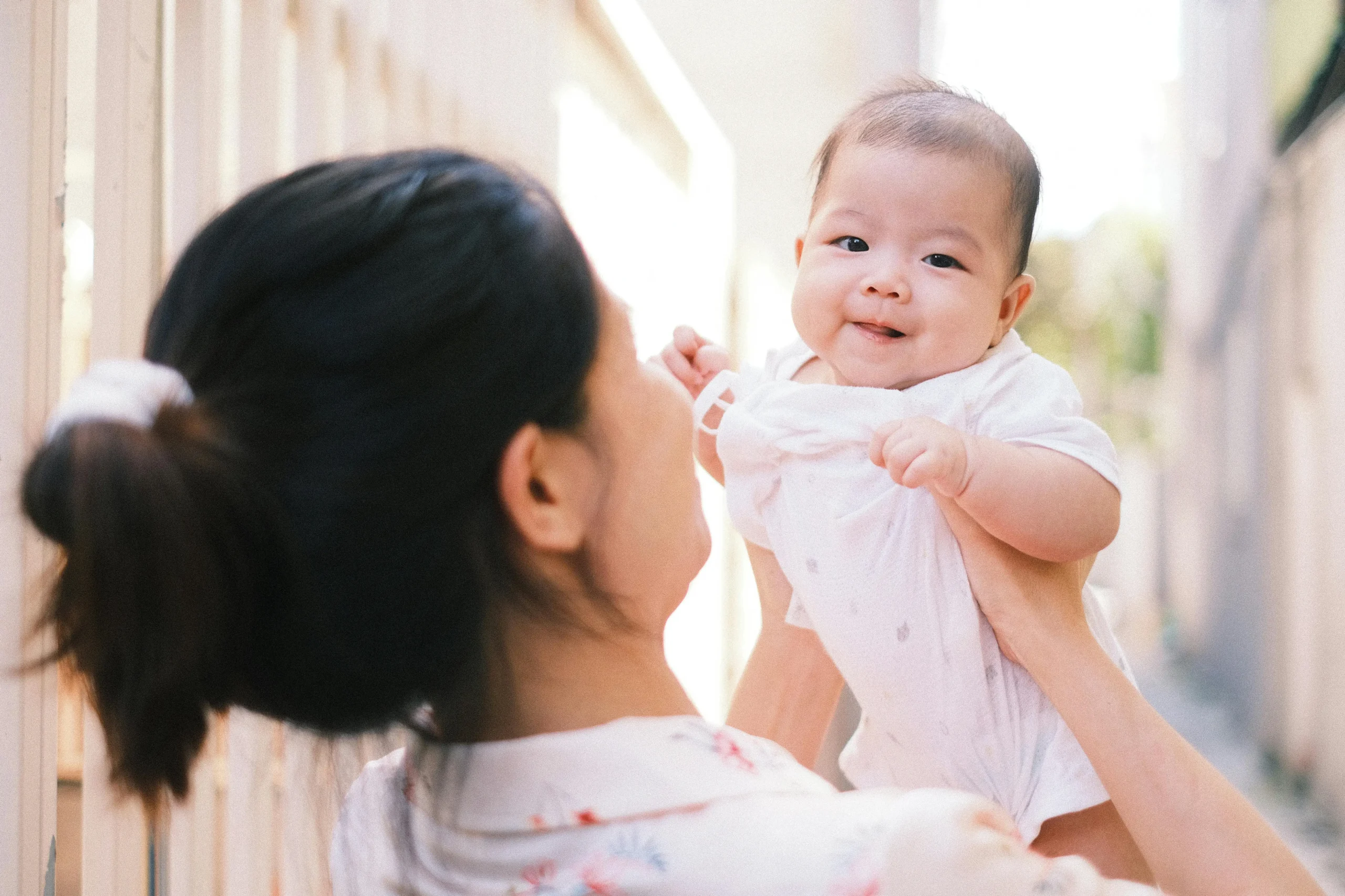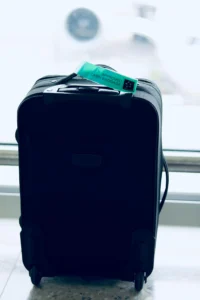Traveling with infants in flight can seem intimidating, but with proper preparation, it can be a smooth and even enjoyable experience. Whether you’re a seasoned traveler or embarking on a first flight with your baby, this guide offers essential tips to make the journey with infants in flight as smooth as possible.

Key Takeaways
- Understand airline policies and regulations for infants in flight.
- Choose the right seating arrangements to ensure your baby’s comfort and safety.
- Pack smart and efficiently to minimize stress when traveling with infants in flight.
- Learn techniques to keep infants in flight calm and content throughout the journey.
- Be prepared to handle unexpected situations like ear pressure and fussiness for infants in flight.
Preparing for the Flight
Preparing for a trip with infants in flight is essential for a smooth experience. With the right planning, your journey can be enjoyable for both you and your baby.
Booking the Right Seats
When flying with infants in flight, choosing the right seat can make a big difference. Consider the following:
- Bulkhead seats offer extra space for infants in flight supplies and can make the journey more comfortable.
- For lap-held infants in flight, choosing an aisle or window seat can provide easier access during the flight.
- Check your airline’s policies for traveling with infants – airlines may have specific guidelines for infants in flight.
Packing for Your Little One
Packing for infants in flight requires special attention to detail. Make a list of essentials to ensure a comfortable journey. Here are some must-have items for infants in flight:
- *Diapers, wipes, and a portable changing pad: Essential for keeping *infants in flight clean and comfortable.
- *Feeding supplies: Bring enough formula, baby food, and bottles for *infants in flight.
- Comfort items like a favorite toy or pacifier can help soothe infants in flight.
- *Extra clothes: Bring a spare set of clothes for *infants in flight in case of spills or accidents.
- WHO’s advice on baby health during travel – tips for keeping infants in flight safe and healthy.
Preparing for your baby’s first flight might seem overwhelming. But with good planning, you can travel with confidence. Just remember to think about your baby’s needs and pack accordingly for a stress-free trip.
Navigating Airport Security
Security checks can be daunting when traveling with infants in flight. Preparation will make this part easier.
- Keep your baby’s essentials like bottles and formula handy, as infants in flight items may need extra screening.
- Learn TSA’s rules for traveling with infants in flight so you’re prepared for screening procedures.
- Talk to the security staff to ensure a smooth process when traveling with infants in flight.
| Tip | Benefit |
|---|---|
| Arrive at the airport with plenty of time to spare | This lets you go through security without feeling rushed or stressed |
| Keep your baby in a front-facing carrier or stroller | This makes moving through the security line easier and keeps you close |
| Dress your infant in easy-to-remove clothing | This helps speed up the screening process and cuts down on wait time |
By following these tips and staying calm, you can have a smooth airport security experience. With some prep, you can enjoy the journey with your family.
“Traveling with a baby is an adventure, but with the right mindset and a bit of planning, it can be a wonderful one.”
Keeping Your Infant Comfortable
Ensuring infants in flight are comfortable is key to a successful journey. These tips will help keep your baby content during the flight.
Feeding and Diaper Changes
Planning ahead is key when it comes to feeding and diaper changes during your can infants fly flight. Pack extra supplies, such as formula, bottles, diapers, and wipes, to ensure you’re prepared for any situation. Familiarize yourself with the airline’s policies regarding in-flight feeding and diaper changing.
Consider scheduling feedings and diaper changes during periods of reduced cabin activity. This will help minimize disruptions.
Entertaining and Soothing
To keep your can infants fly entertained and soothed during the flight, bring a variety of toys, books, and pacifiers. Engage your little one with interactive games, sing-alongs, or gentle rocking motions. If your infant becomes fussy, try techniques like white noise, soft music, or gentle bouncing to help them calm down.
Remember, every child is unique, so be prepared to try different approaches. Find what works best for your can infants fly.
“Keeping your can infants fly comfortable during the flight is essential for a successful journey.”
By following these tips and remaining patient and adaptable, you can ensure your can infants fly has a smooth and enjoyable flight experience. With a little preparation and creativity, you’ll be well on your way to a stress-free journey with your little one.
Managing Sleep and Rest
Keeping your baby comfortable and well-rested during a flight is key. A cozy environment can make your little one feel safe and sleep well while flying with a baby.
Creating a Cozy Environment
To make a soothing space for your baby, try these tips:
- Bring a familiar blanket, stuffed animal, or pacifier to help them feel at ease.
- Dress your baby in comfortable, soft clothing that won’t restrict movement.
- Utilize a compact travel bassinet or carrier to provide a designated sleep space.
- Use a white noise machine or play soothing lullabies to help drown out the cabin noise.
- Dim the overhead lights or use a small travel nightlight to maintain a calming ambiance.
By making a cozy, familiar space, you can help your baby rest well during the flight.
Managing Naps and Sleep Schedules
Changing your baby’s sleep routine for the flight can be tough. But, these strategies can help:
- Try to keep your baby’s regular nap times as much as possible.
- Adjust their bedtime slightly to match the destination time zone.
- Encourage short, frequent naps to avoid overtiredness.
- Be flexible and listen to your baby’s cues, as their sleep patterns may change during the flight.
By focusing on your baby’s sleep and rest, you can make the flight with a baby more comfortable and enjoyable.

| Tip | Benefit |
|---|---|
| Bring familiar sleep aids | Helps your baby feel secure and relaxed |
| Maintain regular nap times | Prevents overtiredness and fussiness |
| Adjust bedtime for destination time | Eases transition to new time zone |
| Use a travel bassinet or carrier | Provides a designated, comfortable sleep space |
Dealing with Ear Pressure
When flying with a baby, ear pressure is a big worry. Babies might feel pain or discomfort from the pressure changes during takeoff and landing. But, there are ways to help your baby feel better and avoid distress.
Feeding and Sucking
Feeding or sucking on a pacifier can really help. The sucking action opens the Eustachian tubes. This lets air flow and equalizes ear pressure. Keep a bottle or pacifier ready for when the plane goes up and down.
Pressure-Relieving Products
There are special products to help with ear pressure in babies. These include:
- Ear plugs or noise-cancelling headphones: They can block out the sound of pressure changes, making it easier for your baby.
- Ear pressure relief drops: These drops can be used before takeoff and landing to help with ear pressure.
Always check with your pediatrician before using these products. Make sure they’re safe for your baby’s age and needs.
Stay Calm and Comforted
Your baby looks to you for cues. If you stay calm, your baby will feel more at ease. Hold them close, rock them gently, and keep a positive vibe during the flight.
By using these strategies, you can make flying more comfortable for your baby. This is true, no matter how old does a baby have to be to fly.
Handling Unexpected Situations
Traveling with a newborn can be unpredictable. But, having a plan helps you deal with unexpected challenges. This section offers strategies to keep your little one comfortable and secure when when can a newborn fly.
Crying and Fussiness
Infants may get upset or fussy during the flight. This could be due to air pressure changes, new surroundings, or discomfort. Stay calm and try these techniques to soothe your baby:
- Offer a pacifier or bottle to help relieve ear pressure
- Gently rock, sway, or walk with your baby to provide comfort
- Sing softly or play calming music to distract and soothe
- If all else fails, ask a flight attendant for assistance
Illness and Emergencies
While rare, unexpected medical issues can occur during the flight. Be prepared by packing any necessary medications and a copy of your child’s medical records. If your baby becomes ill or experiences a medical emergency, notify the flight crew immediately. They are trained to handle in-flight medical situations and can provide assistance or coordinate emergency medical care upon landing.
“Preparation and a calm demeanor can go a long way in managing unexpected situations when when can a newborn fly.”
By anticipating potential challenges and having a plan in place, you can confidently handle any unexpected situations that arise during your infant’s first flight. Stay vigilant, trust your instincts, and don’t hesitate to ask for help from the flight crew if needed.

Infants in Flight Tips
Traveling with an infant by air can seem daunting, but with the right preparation, it can be smooth and enjoyable. Throughout this article, we’ve covered many tips and strategies for traveling with your little one. Here are the key can infants fly tips to keep in mind:
- Plan ahead by booking the right seats, packing essential items, and familiarizing yourself with airport security procedures.
- Prioritize your infant’s comfort by staying prepared for feeding, diaper changes, and keeping them entertained and soothed during the flight.
- Manage sleep and rest by creating a cozy environment and adjusting your infant’s sleep schedule accordingly.
- Anticipate and address potential challenges, such as ear pressure, crying, fussiness, or unexpected illnesses or emergencies.
- Stay organized and focused on the task at hand to minimize stress and fully enjoy the journey with your little one.
Remember, every can infants fly journey is unique, so be adaptable, patient, and ready to improvise as needed. With these tips in mind, you can confidently embark on your air travel adventure with your infant, creating cherished memories along the way.
“The greatest gift you can give your child is not material things, but the gift of your time, attention, and love.”
Staying Organized and Stress-Free
When flying with a baby, staying organized and calm is key. Start by packing smart, making sure you have everything your baby needs close by. Make a checklist to double-check you have diapers, wipes, extra clothes, and comfort items.
Managing your time is also important to avoid stress. Give yourself plenty of time for check-in, security, and boarding. This way, you can handle any unexpected delays or issues that might come up during your flying with a baby trip.
Keep a positive attitude during your journey. Enjoy the adventure of exploring new places with your baby. If you need help, don’t be afraid to ask airline staff or other travelers. With some planning and a calm approach, flying with your baby can be a great experience for everyone.
FAQ
How old does a baby have to be to fly?
Most airlines let babies as young as 2 weeks fly. But, there are some rules and things to think about. It’s best to wait until your baby is 4-6 weeks old before flying. This helps avoid health risks and makes sure your baby is ready for the trip.
When can a newborn fly?
Newborns can fly as young as 2 weeks. But, it’s better to wait until they are 4-6 weeks old. This lets them build up their immune system and get past the most risky time. Always talk to your pediatrician before booking a flight with a newborn.
Can infants fly?
Yes, infants can fly, but there are important things to remember. Most airlines let infants as young as 2 weeks fly. But, it’s best to wait until they are 4-6 weeks old. You’ll need to follow airline rules and arrange for any special needs.
What do I need to know about flying with a baby?
Flying with a baby requires some planning. You need to book the right seats and pack the essentials. You’ll also need to navigate airport security and keep your baby comfortable. Managing sleep and rest, and being ready for unexpected situations, is key to a smooth trip.






